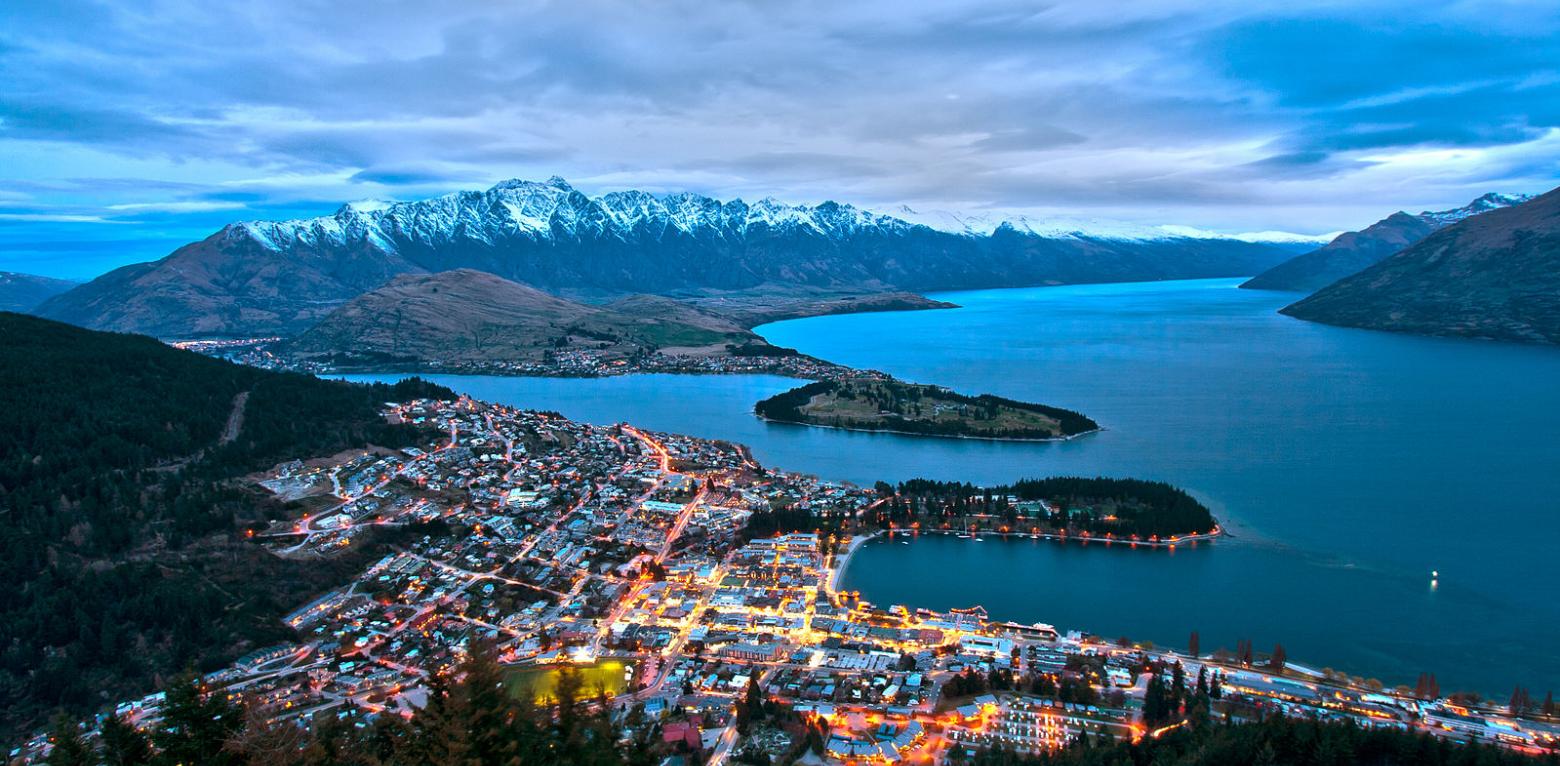Thinking about moving to Queenstown?
It’s one heck of a town, dubbed the ‘adventure capital of the world’ and long-hailed as New Zealand’s adventure playground. From jet boating to bungy jumping and mountain biking to skiing, it is the active person’s dream.
Queenstown’s booming tourist industry has attracted many people on temporary working visas to the area. There’s a huge range of temporary jobs with opportunities to hang around longer if you’re ready to settle down for a while. There’s also a thriving international community here, it’s a great place to make friends from around the world, though perhaps not the best place to immerse yourself in authentic Kiwi culture.
"Once a winter and summer resort with distinct busy seasons, the town is growing rapidly and is now busy all year."
Once a winter and summer resort with distinct busy seasons, the town is growing rapidly and is now busy all year. Construction, particularly in the Frankton and Five Mile areas is booming and there’s a few big shops due to open. Many people on working visas find jobs in tourism, hospitality, construction and retail. Opportunities in other sectors are difficult to come by, so it’s worth embracing life in hospitality or picking up an unusual tourism job to really get to know the town and earn money before pursuing your dream career.
Think about signing up with an agency to pick up temporary work when you first arrive. You’ll get to experience working in different companies and most agencies will support your move into a permanent position if you find a job that suits you. TradeStaff is a great resource for jobs in construction, and AddStaff is a friendly local agency and a good contact for administration and hospitality roles. Minimum wage for adult employees in New Zealand is currently $15.25 NZD before tax (February 2017).
Experience Queenstown will be launching its own job search site soon – keep your eyes peeled for updates!
Finding a home can be tricky, so book your temporary accommodation for a week or two to give yourself time to find your new home.
Queenstown has a housing shortage and there’s a hangover of cheap summer homes which are now lived in year-round. Single-glazed, uninsulated homes can be very chilly in winter, so visit a bargain store like The Warehouse or second hand shops like the Salvation Army for warm duvets and an electric blanket.
"Remember – do not pay for a house you haven’t seen!"
Local Facebook groups like Queenstown Trading and Queenstown for Rent are a good resource for ‘flatmate wanted’ ads. As is the Lakes Weekly Bulletin - a local printed bulletin with job, for sale and for rent listings. An online edition is available every Monday. There are housing agencies, who offer more formal rental agreements and this can provide more security, though agency fees can be high. It’s a good idea to have $1,000 - $2,000 NZD ready for housing costs, bond and rent advancements.
Remember – do not pay for a house you haven’t seen! Always settle your rent and bond agreements in person, scam artists have been known to put false properties on the rental market, demanding rent in advance and advising prospective tenants they’ll ‘post the keys’. This is rare, but it’s good to be aware.
It’s easiest to set up your bank account once you have a job and a permanent address. Banks require your passport and proof of address (like your new tenancy agreement) to open an account. Most Kiwis pay for everything with EFTPOS, this is like a cash card and it’s accepted by all shops to pay for goods (with a small or no lower limit).
If you want your card to have paywave and online shopping capability, you’ll need to pay a nominal annual fee to upgrade to Visa or similar. It’s a good option if you’re here for a year or more. Kiwi Bank are very friendly and share their offices with the local post office, which can be a handy combination.
Citizen’s Advice Bureau – Located in central Queenstown, they can help advise on housing, work and visa issues. They also have a tonne of literature on other resources. If you’re stuck or unsure about your rights, they should be your first port of call.
(Queenstown Bay image by Lawrence Murray)








